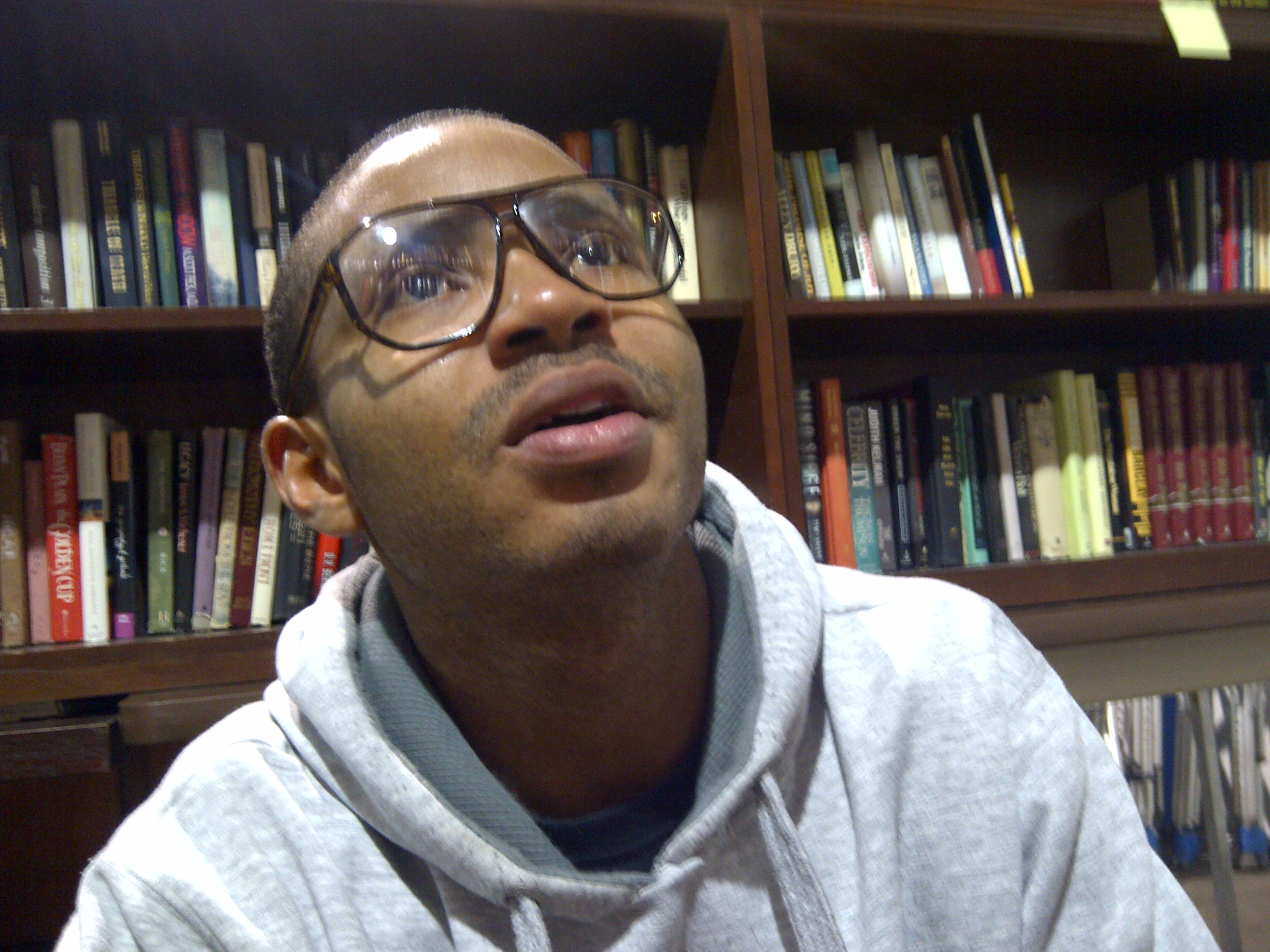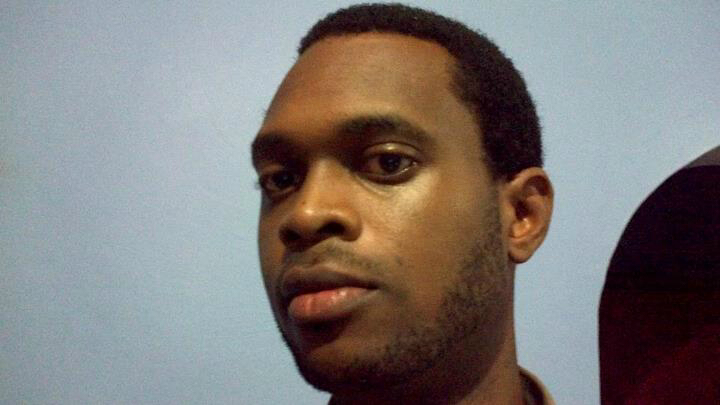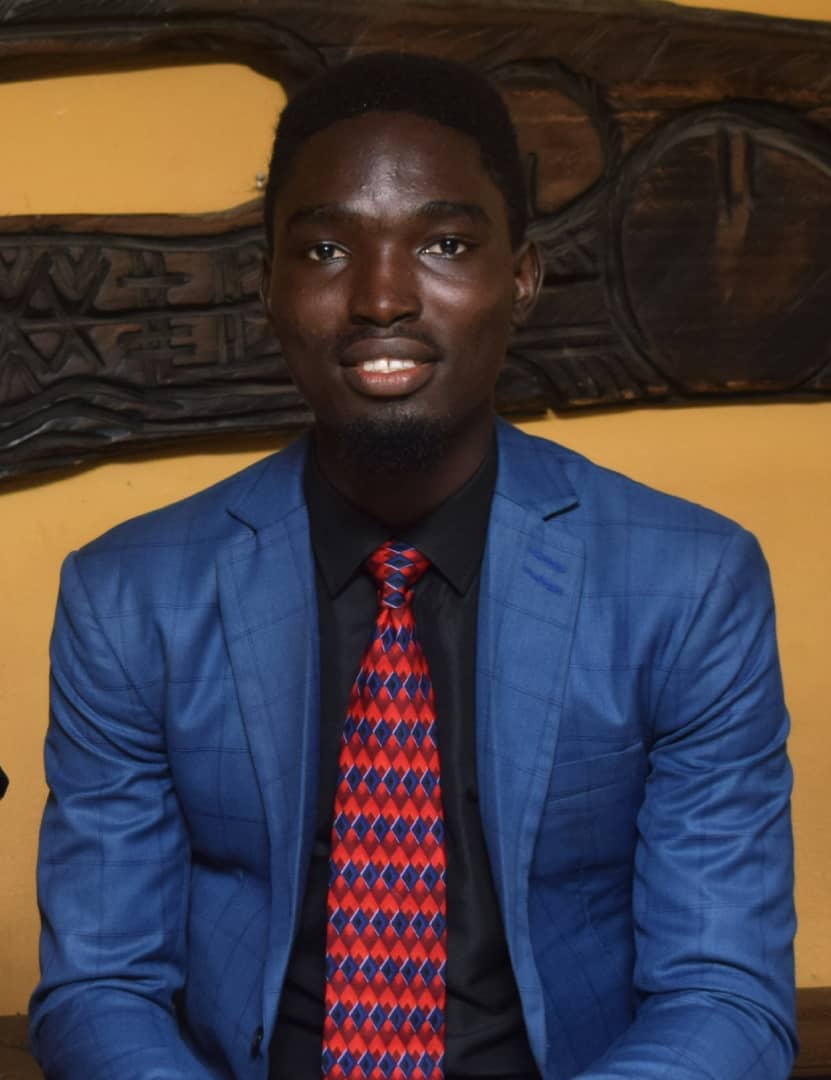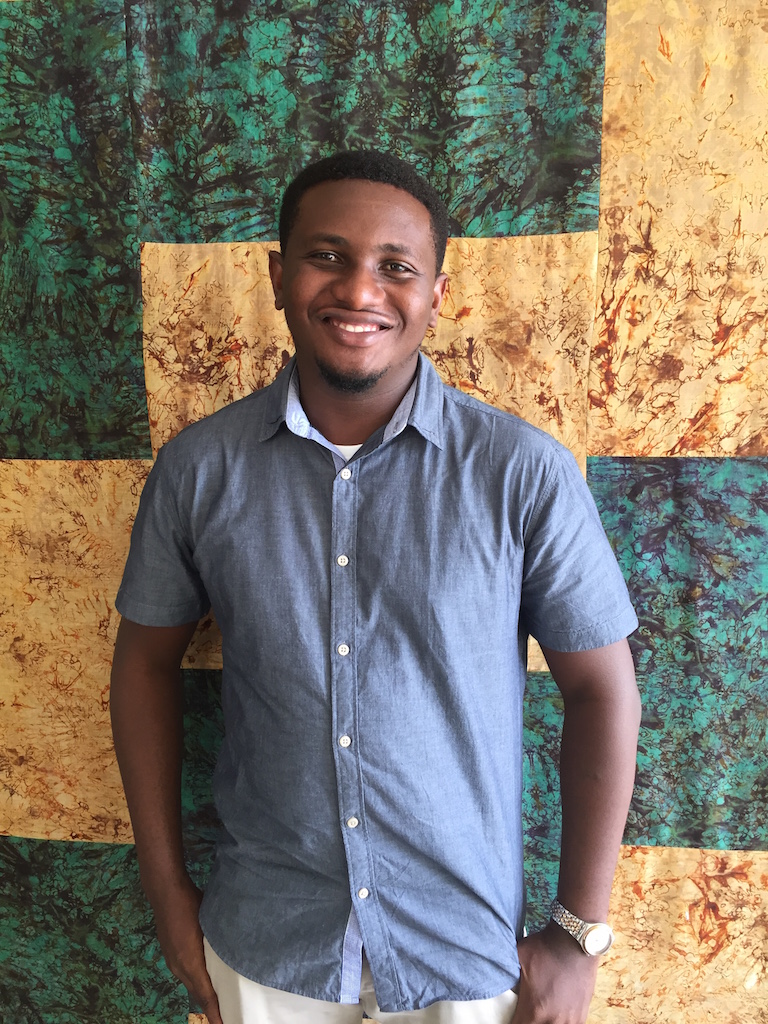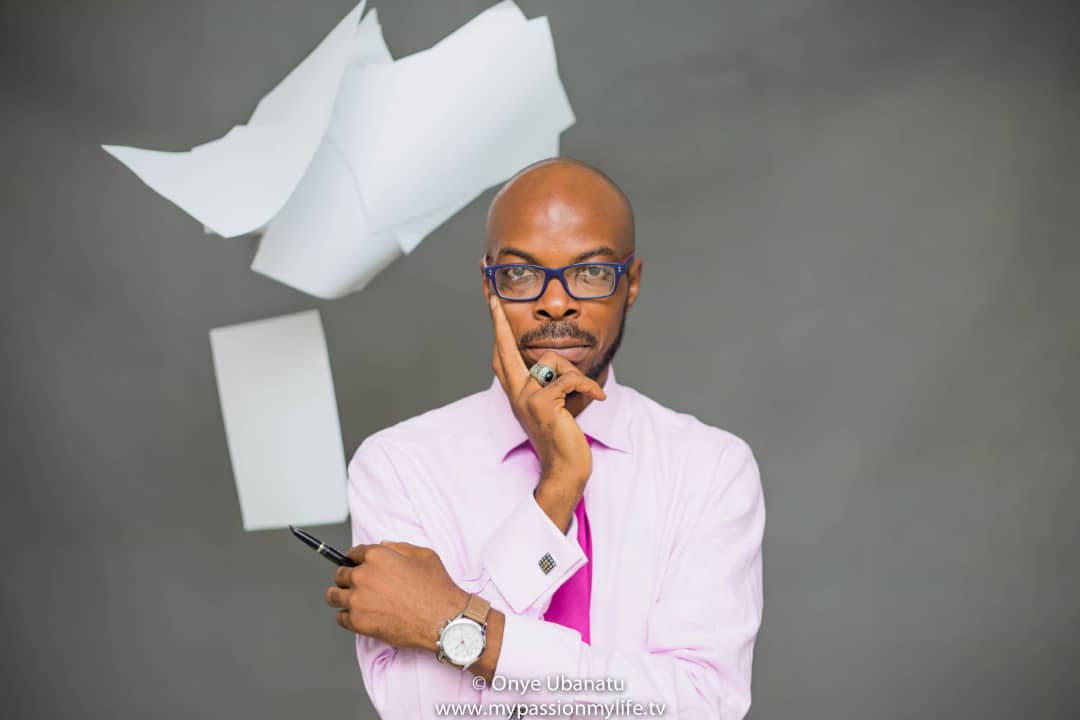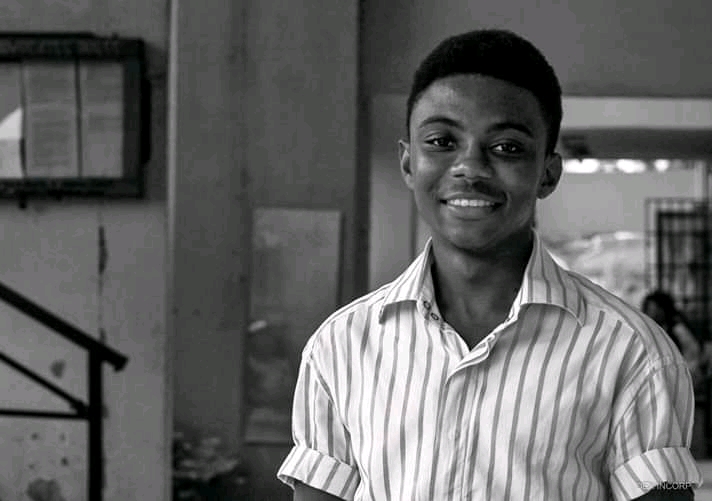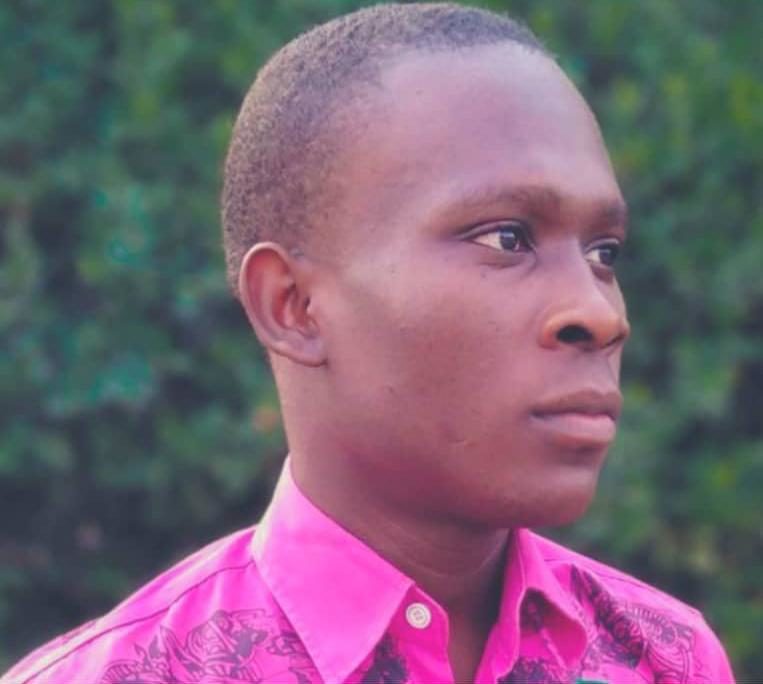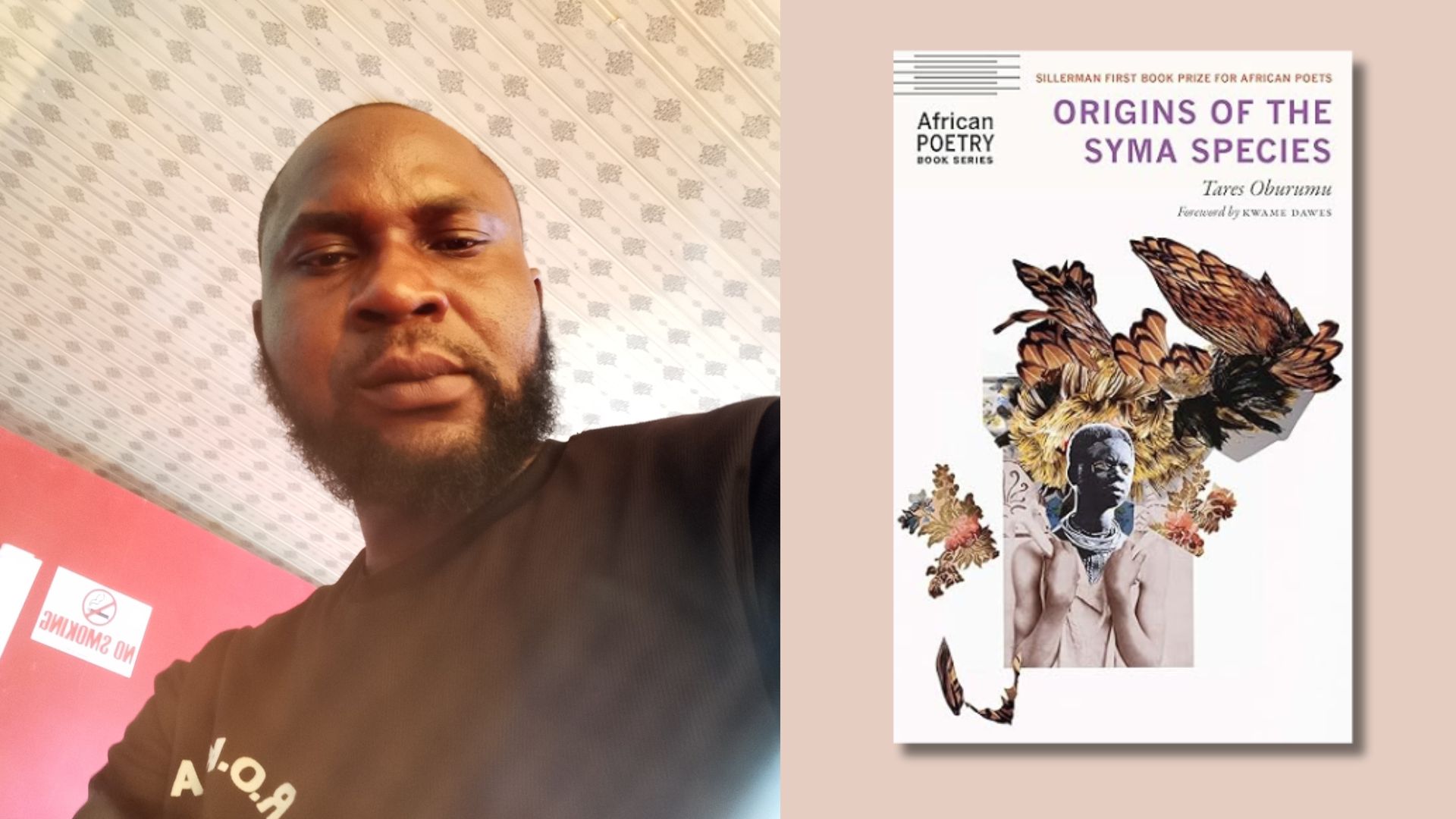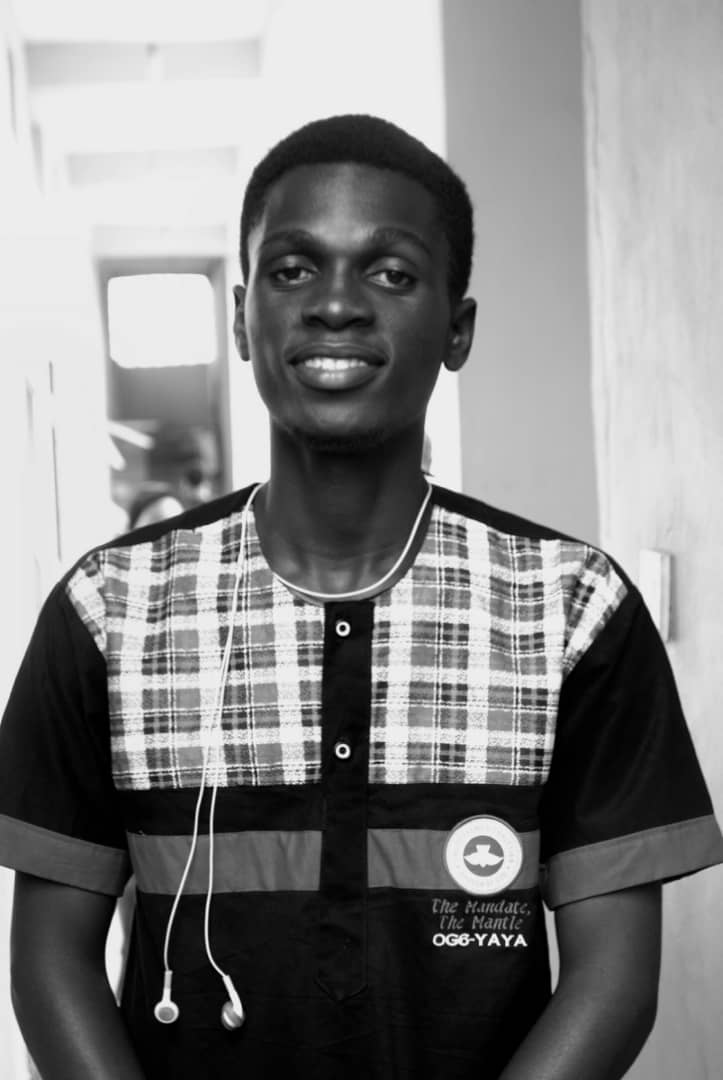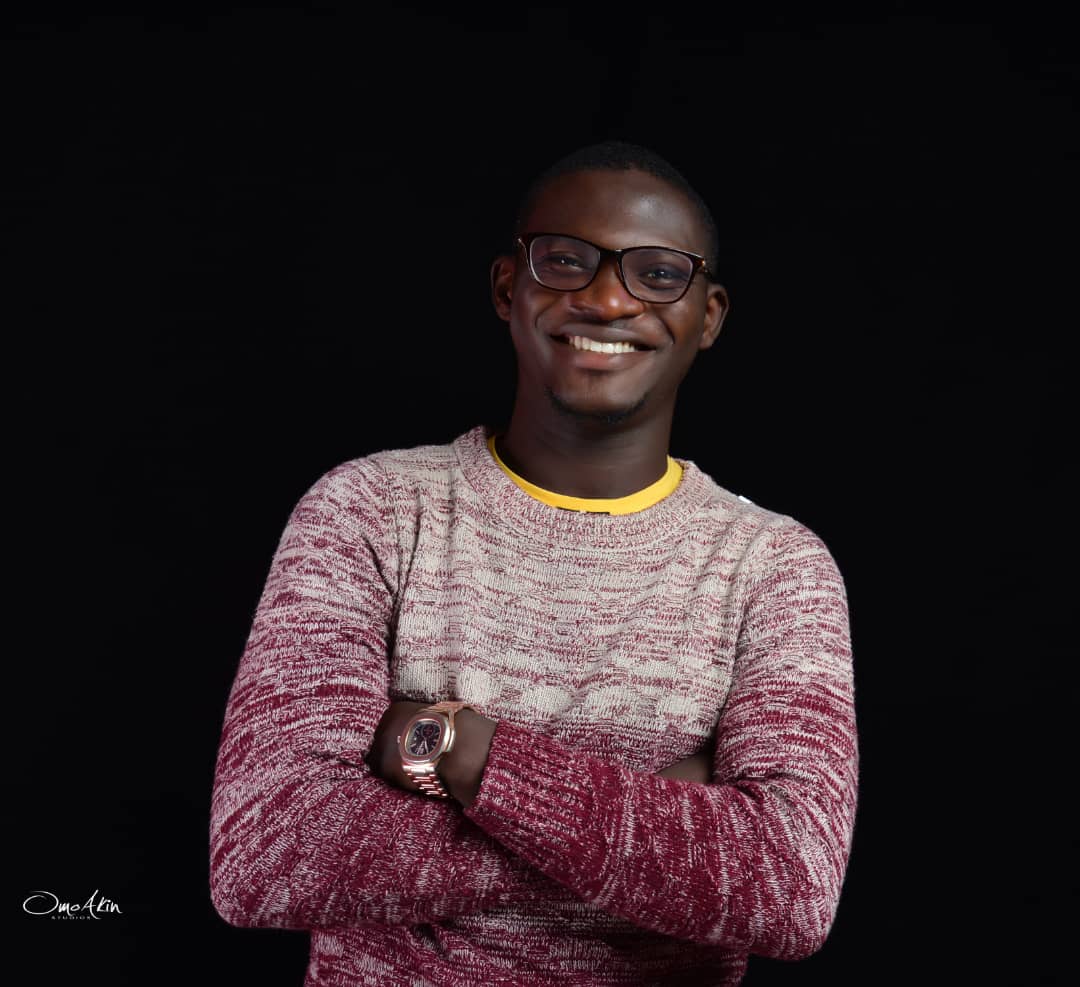“Kolawole Samuel Adebayo is an old soul in a young Nigerian body whose poetry seeks to explore and awaken the human consciousness. Kolawole is a poetry reader and editor at Feral Journal, a journal of arts and poetry pioneered by Animal Heart Press, Vermont, USA. His works have appeared in Glass Poetry, Button Poetry, Voicemail Poems, Kanstellation, Lucent Dreaming, Burning House Press, Mineral Lit Magazine, Praxis Magazine, and elsewhere. You can connect with him on Twitter @samofthevoice.”
Interviewer: Michael Akuchie
MA:
What I have admired from afar, sincerely speaking, is your infusion of Yoruba phrases in your poems. It offers your work a distinct impression, a classic bilingual touch, and grants us the vast possibility of meaning through the lens of two languages. How does it feel to be bilingual in your poetry?
KS:
It feels both original and powerful. As an ardent lover of the Yorùbá heritage, I have always sought ways to portray the primordial wisdom enmeshed in the Yorùbá culture to the world. Bilingualism helps me to achieve this goal. It was Achebe who said “Language is a weapon, and we use it.” By exploring bilingualism, I am able to retain all the glories of my Yorùbá-ness even as I speak or write the English Language. I guess bilingualism is my tool to being English in a Yorùbá way.
MA:
“Ode for a Distant Friend who Died in an Accident Yesterday // or Suddenly” published in Kanstallation Magazine is, perhaps, the very first of your poems I have read, which does not contain fragments of the Biblical narrative. However, there dwells within the verses a couple of lines which serve as a beacon to the concept of mysticism. “You have swum into the country of spirits”, is one line that has stayed with me ever since I read that poem. What was the objective of that line there and, indeed, is it a reference to a certain belief you hold about mysticism and the spirit world?
KS:
In this poem, I was letting out my grief about a distant but beloved friend who had died the previous day. And as I grieved, I found myself brimming with hope at the same time. It seemed strange. Somehow, as I discovered, grief and hope seem to occur simultaneously. My objective in that line was to show the glint of hope that was inside my grief. And more, the line was a child of my belief in the afterlife— that when we die, we do not go into oblivion; rather, we transcend into another kind of existence.
MA:
Do you believe in the transcendence of soul upon death?
KS:
Yes, I do. Death is but a portal into another realm.
Also, I think one does not necessarily need to have been an active part of an experience before they can write about it. In the end, we all belong to this huge family of the human race. Everyone’s experience is an integral part of the collective human story.
MA:
“Ode to a Lost Brother” which appears in Voicemail Poems offers yet another inward glance into the concept of death, dealing with the loss of a significant member of one’s household, and pulling oneself together to re-emerge into the world. Did the poems originate from the actual passing of a loved one?
KS:
No, the poem did not originate from the actual passing of a loved one. I imagined the grief that victims of the Boko Haram insurgency, which was still very rife at the time, must have gone through and so I wrote. The poem was my own way of showing empathy. And I think one of the ways we can be better humans is by becoming more empathetic. Also, I think one does not necessarily need to have been an active part of an experience before they can write about it. In the end, we all belong to this huge family of the human race. Everyone’s experience is an integral part of the collective human story. Therefore, humans should be there for humans regardless of class, religion, tribe, language and other such social stratifications.
MA:
When do you decide that a poem is completed? Is there a formula, a method, perhaps some criteria it has to meet?
KS:
It’s quite tricky. Because sometimes, I have felt a poem was completed already only to return to it to find a need to work more on it. So, it’s a tricky one. But a poem feels most complete to me when it evokes in me the kind of emotion I intend for it to evoke in the reader. Also, if I keep going back to a poem to read it over and over again, then I know I am very pleased with the work.
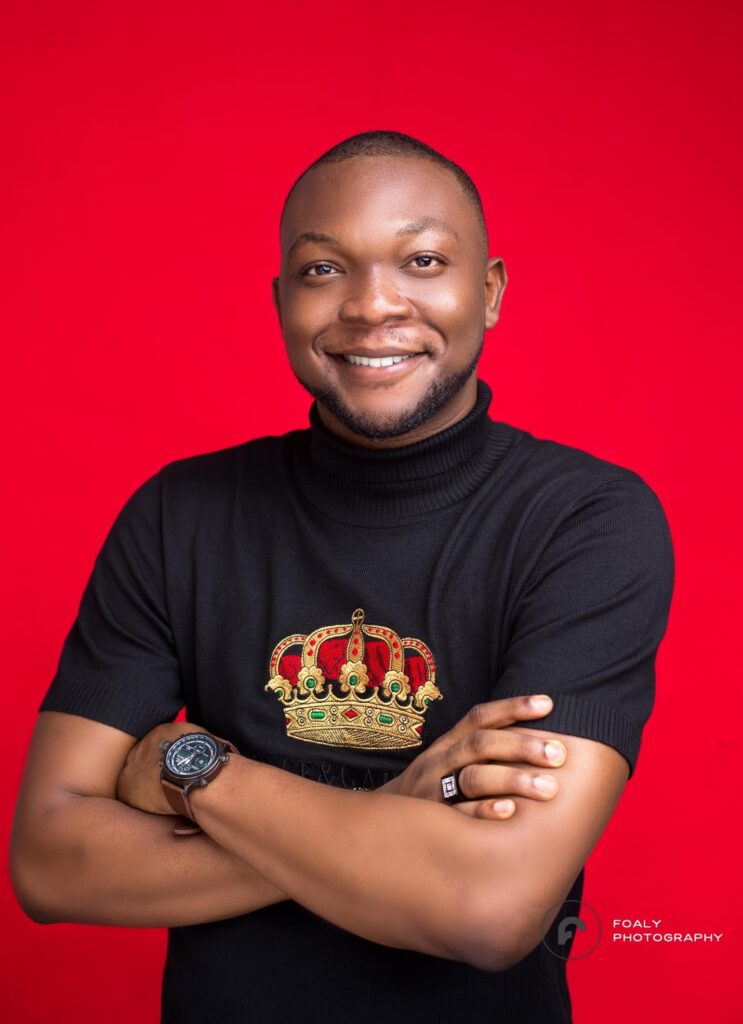
MA:
“But I have realized that fame / Is a distant city that only a few find. / So, I don’t wanna be famous no more”, are lines from your poem, “If Fame Comes or Not” published by Glass Poetry Press in its Poets Resist folio. I like the profuse honesty of these lines, and like any other curious reader, imagine if this originated from a real-life experience.
KS:
First, I think I should say that I do not detest fame at all. No, not in any way. However, the poem came from the discovery that those who chase fame tooth and nail seem to never find it. In my observations from stories told by others and, of course, my own personal experiences, fame seems to seek those who do not seek it. It goes after those who go hard after their dreams. It’s similar to a quote from “3 Idiots”, my best Indian movie of all times: “Chase after your dreams and success will chase after you pants down.”
MA:
How does the emerging writer reconcile their personal objectives with the ever rising societal pressure to succeed fast especially in a nation with a dwindling interest of the populace in the arts?
KS:
I think every man must recognize his journey and walk that path without shame. A major way to be unmoved by the crazy pressure out there is to be convinced of your own journey. We are different and so must our respective journeys be. A knowledge of this helps you determine what space your art needs to be in and at what time. If it’s to be here, in this nation where the literary community needs to widen its circle of opportunities, only you can tell. If it’s to be outside here, in a more thriving space, only you can also tell. And, like I earlier said about fame or success, if you put in the work that your objectives deserve, the light will find you and rest on you.
MA:
How often do you get distracted from writing by family members, external influences, and how best do you cope with this?
KS:
Hahahahaha… I get distracted a lot. Because asides poetry, I have an arm and leg in other activities. So, it can be quite intense for me at times. I think the way I try to cope with this is not to be too worried when the distraction occurs, knowing full well I will return to the work at a more opportune time. I’ve realized this craft needs a lot of patience— a lot of giving grace and love to yourself. If I can’t finish a work today, I’ll do so tomorrow; and if not tomorrow, then I’ll do it the day after. Of course, this isn’t a call to laziness. There are times when I lock myself in and unburden myself from all forms of distraction. I’m only saying we all need to be patient with ourselves.
MA:
Again on “Ode to a Lost Brother”, you write “We do not save others before ourselves.” and I’m curious about the weight of that particular line. However, before saying more, I’d have to highlight the very line before it which I actually feel is a precedent for the aforementioned line. “Because when fire burns us all,” is the preceding line so I ask: In the face of danger, do you consider yourself to be of a greater value than that of loved ones and even those with whom you share no significant portion of familiarity?
KS:
It’s a line from a Yorùbá proverb: “Tí iná bá ń jóni jó ọmọ ẹni, tara ẹni là ń kọ́ gbọ̀n”, although I evolved the version in English a little bit in the poem. I think it is the measure of love that you give yourself that you will be able to share with others— loved ones or not. Christ says “Love your neighbor as yourself”. If a man doesn’t love himself, how then will he love others? I’m tempted to say love seems to be first self-centered before it is selfless. And yes, I might have just said that. Hahahahaha…
I’m only saying we all need to be patient with ourselves.
MA:
Describe your poetry with two adjectives that best qualify your entire mission and goal.
KS:
Honest. Exploratory.
MA:
In two sentences, please describe your craft process.
KS:
I’d say spontaneous because, naturally, I’m quite a spontaneous person and this reflects in my craft process. I’ve written poems, had poetry ideas, edited poems in my head or on paper in the most unimaginable places— exam hall, church, bathroom, and many more.
MA:
“The Humility of God”, a delightfully daring poem published by Kreative Diadem allows us, the readers, to visualize God in human form and at the mercy of the very things which plague us on a daily basis. You mention that He must have been drenched by rain multiple times, had His flesh craved for by a swarm of mosquitoes, that of course suggests a form of vulnerability often associated with mere mortals but quite off-putting for a God. What was your honest intent with the poem and especially the portions I have highlighted? Was it to bring to the fore the degree of vulnerability that God/Christ may have encountered in his stay on earth?
KS:
Yes, my intention was to explore the incarnation of God and to show in every possible way what it must have meant for God to be man.
MA:
Have you got a line from any of your published poems which you deeply admire?
KS:
I have several lines that fascinate me. The line that fascinates me most is from a poem of mine that’s still unpublished. It’s this line: “Little as I am, let me be meaningful.” But since you’ve asked for a line from any of my published poems, I admire this line from “Into the Womb of Darkness”, published by Mineral Lit Magazine: “On the day I finally know my body in all its fullness / I will dance like forest fires.”
MA:
Talking acceptances and rejections, how have both of the aforementioned affected your writing?
KS:
They both motivate me. I think the way to handle rejections is to know that if a space doesn’t resonate with your work, it doesn’t mean you’re a terrible writer; it just means they don’t resonate with it at that time. It also doesn’t mean other spaces won’t love your work. The goal is to keep writing— rejections or not— to empty myself in the most pristine form into the book of language.
MA:
As a reader for Animal Heart Press’s Nigerian Contemporary Poets Anthology, Memento, what is your overall assessment of the works received and considered?
KS:
Magnificent! Heart-wrenching! Moving! I think that anthology is one of the very best to have come out of Nigeria. It’s the most eclectic anthology of contemporary Nigerian poetry that I have seen anywhere.
I think the good thing about poetry is that it never leaves you. Even if you stop writing for some years, it will come back to find you.
MA:
Do you have a particular forecast for poetry in Nigeria?
KS:
There’s been a growing interest in poetry writing over the past decade. New poets emerge every year and the space is brimming with a lot of talents and energy. I think this will continue in the coming years and a bigger and stronger community of poets will be born in the foreseeable future. Poetry has come to stay.
MA:
How best do you fare when faced by the tyranny of the blank page even when your heart is fixed on writing?
KS:
I’ve learned to take it as my mind getting the rest it deserves. I think the good thing about poetry is that it never leaves you. Even if you stop writing for some years, it will come back to find you. So, what do I do when I have my mind fixed on writing and I can only muster a blank page? I go rest and get back to it. And if the same thing continues, I go rest again. That’s what I do. Like we say in Nigeria, I cannot come and go and die. Hahahahaha…
MA:
Could you share an extended playlist of songs you listen to while writing?
KS:
Arrrghh… That’s an exciting question! Okay. So, I have quite a wide playlist but top on the list would be: Yanni, Gandalf, Diane Arkenstone, Enya, Aurora, Fleurie, Rema, Brymo, Fela Kuti, Asa, Aquilo, Fever Ray, Koffee, M.Saki, Lil Wayne, NF, Eminem, Florence + The Machines, Beethoven, and Mozart.
MA:
Any manuscript preparations we should be aware of?
KS:
I am currently working on a chapbook manuscript. I hope it finds a home soon enough.
MA:
What’s your all-time favorite quote and how has it shaped the way you think, feel and relate with people?
KS:
It’s a line from Pa Niyi Osundare’s poem, whose title I can’t remember now: “the road is a riddle with a thousand answers.” It reiterates the truth that it’s only those who seek that will find. It inspires me to dare the unknown, for it’s only when we dare the unknown that we will be washed in the water of knowledge. Now, as I write, I am reminded of a line from that same poem of mine published in Mineral Lit Magazine: “I walk deep into the dark to find the light.” I think this is what the quote from Pa Osundare teaches me— to seek, to sojourn, to adventure.
MA:
Thank you for your words, always.
About the Interviewer
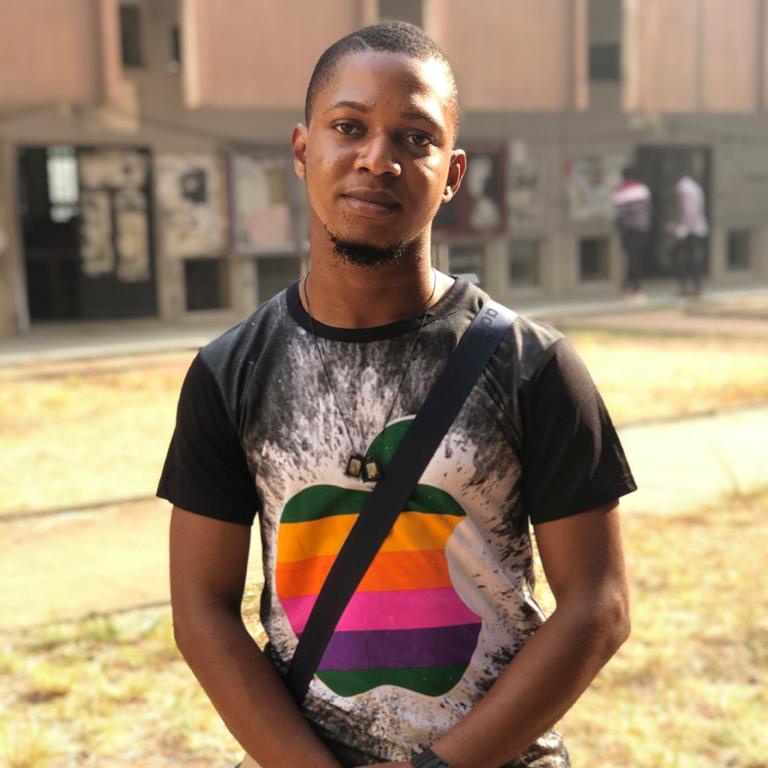
Michael Akuchie is a poet of Igbo-Esan descent. His chapbook manuscript, Wreck, was selected by José Olivarez to win The 2019-2020 Hellebore Poetry Scholarship Award. He is a recipient of the 2020 Roadrunner Poetry Prize and an Orison Anthology nominee. He is a Reader at FRONTIER Poetry. He tweets @Michael_Akuchie

